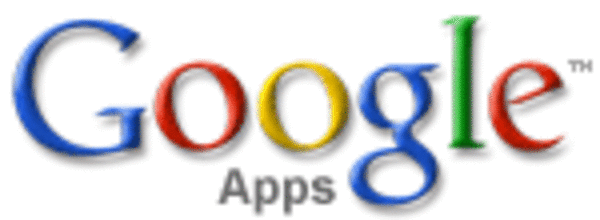The big news tonight is that Google has released a premier edition of its Google Apps package (previously known as Google Apps For Your Domain). I’ve been following the Web Office trend for a long time and, like everyone, have been particularly obsessed with Google’s gradual progression towards a Web Office suite. Tonight is another step towards fully challenging Microsoft Office, but there is still a ways to go. More on that in a minute, but first a quick overview of what’s in Google Apps Premier.

The new ‘suite’ includes the existing Google Apps tools – Gmail, Google Talk, Google Calendar, Page Creator and Start Page. New to the package is Google Docs & Spreadsheets, a significant edition considering that word processing and spreadsheets are mainstays of Microsoft Office. A comparison between the free edition and premier is here. Also new of note is APIs “to integrate with your existing infrastructure” and ability to integrate with 3rd party applications and services. ‘Best of breed’ web apps is another theme we obsess over here at Read/WriteWeb – so APIs and 3rd party features will go a long way towards making Google Office an attraction for external developers and startups. Google wants to be the center of the Web Office ecosystem, a very wise strategy.
CNET has a good summary of the other changes:
“The new Google Apps Premier Edition costs $50 per user account a year. It includes around-the-clock telephone support, and 10GB of storage per user compared with 2GB. The new edition also includes a guarantee of 99.9 percent uptime for Gmail and application programming interfaces that businesses can use to migrate data, enable single sign-on and do other integration. A free version targeted at educational institutions, Google Apps Education Edition, offers the same features as the premier edition except for the storage size. There is also Google Apps Standard Edition, which is free, but lacks the features of the premier edition.”
Over at Techcrunch, Marshall Kirkpatrick waxes philosophical (for some reason I had Orson Welles’ voice in my head as I read the following):
“Beyond competition and concerns, tonight is a good time to recognize the incredible force of innovation that Google is as well. Its nearly full-service suite of sophisticated, integrated online services is something of historic proportion. GoogleÄôs technological brilliance is only beginning to be recognized. What do I mean by that? I mean that with its powerful algorithms to analyze and contextualize information, combined with its growing catalogue of information to analyze – Google is an epoch defining company. Send the worldÄôs business communication through Google and the machine gets a whole lot smarter.”
For now, I’m a bit more cautious about this news. I see it more as just another step for Google towards a full Office suite. There’s still no presentations app, CRM…. or JotSpot for that matter! Google Apps is still a fairly loose package of web-based office apps, not as integrated as it could be yet. The strength of a Web Office suite is collaboration and other web native functionality – whereas desktop office suites have much more sophisticated functionality. There’s also the small matter of offline functionality (which is starting to appear in web apps, but slowly) and whether businesses want to host their office with an external party like Google.
But the gap is definitely closing, no doubt about it, between Google and Microsoft in office software. I’m waiting with interest on Google’s next step – which I’m guessing will involve more integration between their apps, a la something like Basecamp or Central Desktop. I’m also waiting to see some of the new web native features that JotSpot (a Google acquisition last year) had, plus of course missing apps like presentations.
Previous R/WW Web Office/Google coverage
Google Office: Image Gallery
How Google’s Gmail / Docs & Spreadsheets Integration Directly Targets Microsoft
Microsoft vs Google Heats Up
















